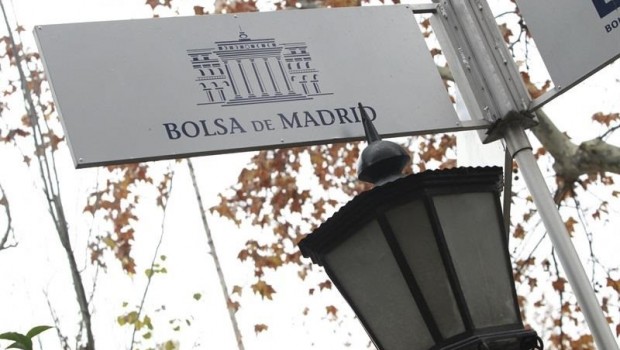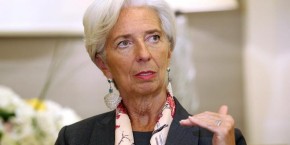The Ibex turns around and rises by 0.6%
October is going to be a very difficult month for the markets, marked by tensions between Italy and the EU

The Ibex 35 has lived this Tuesday a day full of lurches, like the rest of European stock exchanges, which is an example of what brings this October marked, among other things, by the situation between Italy and the Union European (EU). Of course, at the close, the whole Old Continent has been dyed green: the Spanish selective has increased in value 0.67%, up to 9,260.5 points.
IBEX 35
11.503,900
-
-1,46%-170,90
- Max: 11.677,00
- Min: 11.428,00
- Volume: -
- MM 200 : 11.091,94
Thus, although it has lost the 9,300 points, the Ibex has moved away from the annual minimums (which are at 9,111 points), which it nevertheless approached this Monday. The question is whether it will rebound once it reaches this level or if it will lose it and go straight to levels of 8,800.
PROFITS AT THE IBEX ...
All in all, the gains in the Spanish index were led by Siemens Gamesa (+ 2.54%), Inmobiliaria Colonial (+ 2.01%) and Arcelormittal (+ 2%). Also noteworthy are the increases in banks: CaixaBank (+ 1.95%) has also been one of the most bullish values after Fitch raised its rating to 'BB +' yesterday, with a 'stable' outlook.
On the other hand, BBVA (+ 1.53%) and Santander (+ 0.99%) have benefited from the support of HSBC analysts, although they have cut their target prices (down to 5.30 euros in the case of the Cantabrian entity and up to 6.90 in the case of the Basque bank). Bankinter also increased in value 0.8% after Moody's improved its outlook on the entity to 'positive'.
Likewise, Repsol has risen close to 1.3% after Kepler analysts raised their target price to 20.5 euros.
... AND FOUR VALUES IN RED
However, there have also been negative values on Tuesday. Specifically, the losses were led by Indra (-1.34%) and Amadeus (-0.98%). The latter has been harmed by a Barclays report in which it notes the "strong competition" of the company, although it also raises the target price to 65 euros. The other two most bearish companies were DIA (-0.63%) and Grifols (-0.83%).
TECHNICAL ANALYSIS
José María Rodríguez, technical analyst at Bolsamanía, explains that the Ibex has set a minimum of 9,136 points on Tuesday, "which means that it has practically caressed the support it presents at the annual minimums, the 9,111 points."
"And the important thing is that from there the Ibex has regained positions closing near the highs of the day, drawing what looks like a 'hammer' in support levels, a figure that, moreover, ihas more reliability when it occurs after an important corrective stretch. Since the highs at the end of September, the Ibex has retreated by close to 6%, so now it will be bouncing up", adds the expert.
Yes, Rodriguez recalls that "the 'stop loss' for any bullish position that is adopted at this time should be placed below the annual minimum closing prices." "We can not lose sight of the European banking index (SX7E), which for the fourth consecutive time in the last month is respecting the support it presents at the annual minimums (102 points in round numbers) .Or what is the same, all the potential recovery of the European stock exchanges is due to respect the September minimums, and above the September highs (113.28) we will have a return to the financial sector and therefore to the stock markets ", concludes the technical analyst.
ITALY AND COMMERCIAL WAR
Regarding the political and macroeconomic level, the reality is that the market isfearing that the European Commission (EC) is not going to approve the Italian Budgets that will be officially presented on October 15 and on which it should be manifested at the end of month. The reality is also that the top Italian political leaders do not seem to have any intention of going back, no matter how much they have tried to revise the deficit targets for 2020 and 2021, something that, on the other hand, would be insufficient.
"Markets continue to focus on Italy, where bond yields continue to rise, the evolution of the US fixed income market and the recent increase in bond yields in that country are still matters of interest. In the markets there are the renewed signs of the tense relations between China and the US, "the Danske Bank experts point out in their daily report.
On the other hand, the US Secretary of State, Michael Pompeo, has traveled to China and the visit has highlighted the tensions between the two countries, as Pompeo seems to have received, according to the media, a "reprimand" by the minister of Foreign Affairs of China. Also the president of the United States, Donald Trump, has assured that "China is not ready for a trade agreement", and has confirmed that "a couple of meetings" have been canceled, according to Reuters.
The purpose of the trip was to decide a date for a future summit between Trump and the leader of North Korea, Kim Jong-un, which now seems uncertain. Another sign of the tense relations between the two countries is that, according to Bloomberg, the US Treasury Department is considering the possibility of signaling China as a currency manipulator in a report that will be published next week after the recent sharp fall in price of the yuan.
IMF FORECASTS
Finally, it should be stressed that the IMF has published a new assessment of the world economy, in which it has slightly reduced its estimate of world economic growth forecasts for both 2018 and 2019. The IMF now sees an overall growth of 3.7 % for both years, below the 3.9% it predicted back in April.


